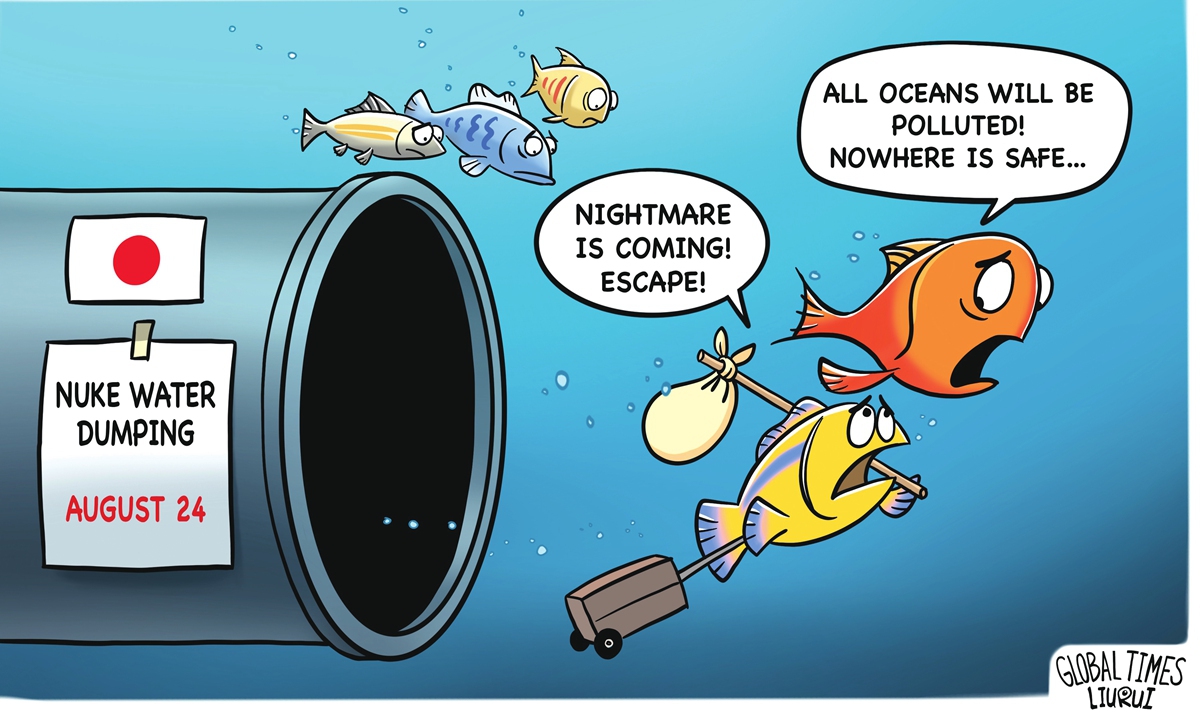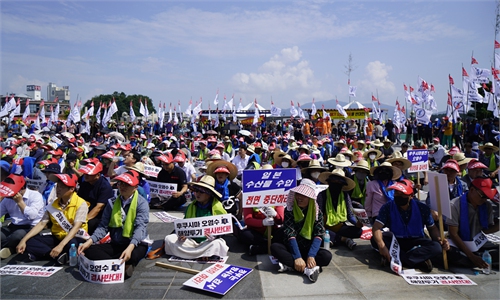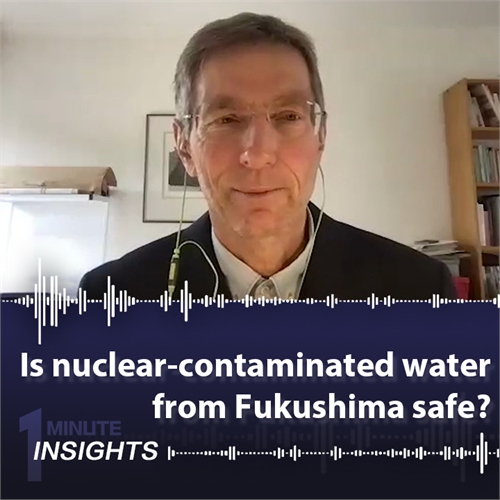
Illustration: Liu Rui/GT
Japan kick starts discharging the nuclear-contaminated water stored at the Fukushima Daiichi nuclear power plant into the sea on Thursday afternoon. This move, prioritizing Japanese government's own interests over the common interests of all humanity, will ultimately lead to Japan's isolation and leave another indelible permanent stain on human history.On March 11, 2011, a magnitude-9 earthquake struck off the coast of northeastern Japan, triggering a towering tsunami that caused a nuclear leak at the Fukushima Daiichi Nuclear Power Plant. As of now, the amount of nuclear-contaminated wastewater stored in Japan has exceeded 1.3 million tons, and it is increasing by 100 tons per day. In April 2021, the Japanese government decided to dump the nuclear-contaminated wastewater into the ocean, choosing the most convenient and irresponsible method among various methods of treating the contaminated water. Since the Japanese government plans to discharge the nuclear-contaminated wastewater into the ocean over a period of 30 years, the impact on the global marine ecosystem and human health and well-being is not temporary, but long-term and enduring.
Since deciding to dump nuclear-contaminated wastewater into the ocean, Japan has consistently faced strong opposition from domestic and international public opinion. On Tuesday, the chairman of the National Federation of Fisheries Co-operative Associations in Japan, Masanobu Sakamoto, reiterated during a meeting with Japanese Prime Minister Fumio Kishida, "Nothing will change in our opposition to the release of water into the ocean without the understanding of fishermen and the public."
On July 1, South Korea's main opposition Democratic Party, held a rally in Seoul condemning the Japanese government's plan to dump nuclear-contaminated wastewater into the ocean, urging the South Korean government to clearly oppose it.
Despite the continuous doubts and opposition to the discharge of nuclear-contaminated wastewater into the ocean from Japan domestically and internationally, the Japanese government has turned a deaf ear and insisted on pushing forward with the discharge process. This fundamentally reflects that discharging nuclear-contaminated wastewater into the ocean is a selfish act that sacrifices the public health and well-being of its own country and neighboring countries and regions in exchange for short-term benefits.
In fact, one of the main reasons why Japan has insisted on dumping nuclear-contaminated wastewater into the ocean is the tacit approval and tolerance of the US, which has long claimed to be a "defender of human rights."
The US is Japan's ally and has had a wide range of influence on Japanese politics, diplomacy, culture and other aspects. It can even influence Japan's domestic and foreign policies to some extent. In theory, the US should exert its influence to prevent Japan from adopting irresponsible practices in dumping nuclear-contaminated wastewater into the ocean. However, unfortunately, regarding this public issue that poses a threat to the global marine ecosystem and human health and well-being, the US did not criticize or condemn it, worse, it praised the Japanese government for its "transparent efforts" in dealing with the issue and considered Japan's dumpingplan to be "safe."
Perhaps it is precisely because of the support and "double standards" from the US that Japan has the confidence to push forward with the process of discharging nuclear-contaminated wastewater into the ocean without any scruples until a specific date is determined and the discharge is implemented.
During World War II, Japan launched aggressive wars against neighboring countries, bringing great disasters to neighboring countries and regions. Today, the discharge of nuclear-contaminated wastewater can be said to be a new disaster that Japan, which has gone through defeat and surrender for more than 70 years, has brought to neighboring countries and regions.
The ocean is the common property of all humanity, not a dumping ground for Japan's arbitrary disposal. Regarding the issue of nuclear-contaminated wastewater, Japan should recognize its own responsibility, adopt a scientific attitude, fulfill its international obligations, and respond to the serious concerns of its own citizens, neighboring countries and the international community. If it simply ignores these concerns, it will ultimately leave an indelible permanent stain on Japan in human history.
The author is a guest research fellow at the Centre for Japanese Studies, Liaoning University. opinion@globaltimes.com.cn



